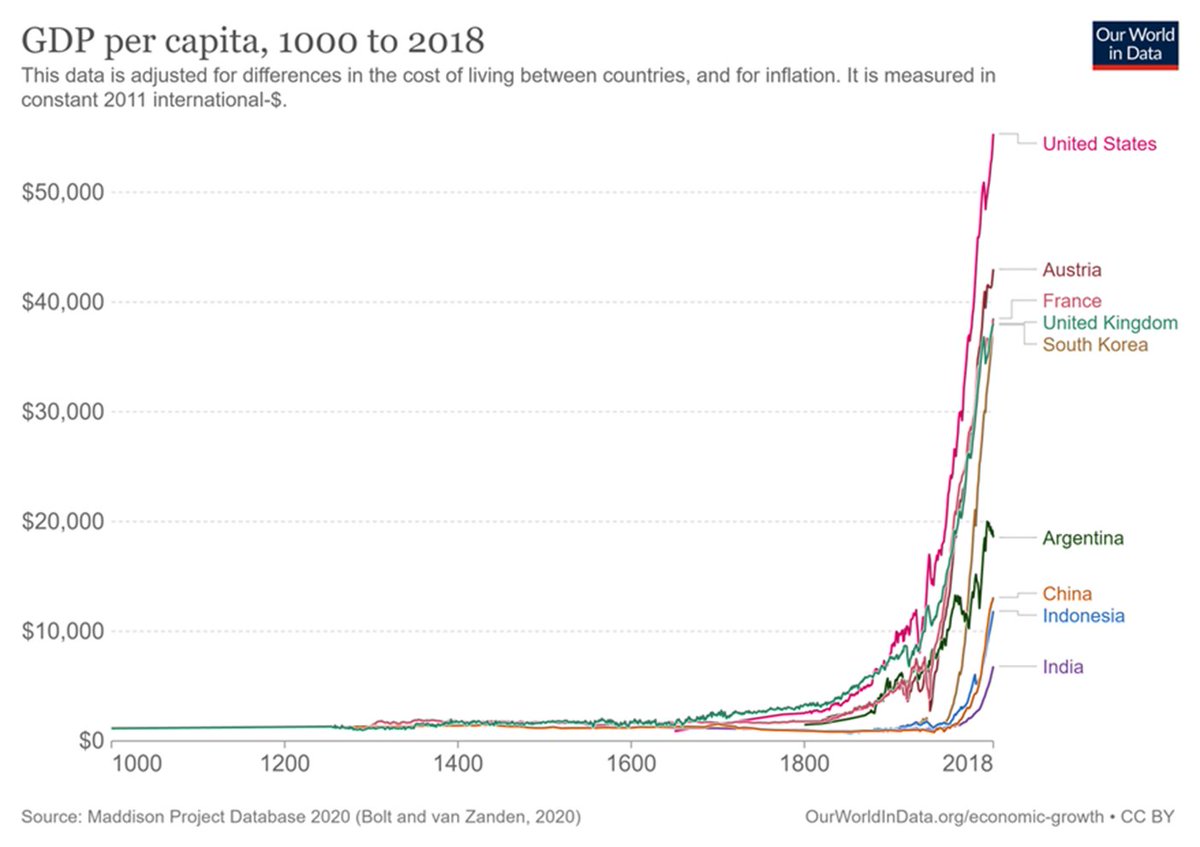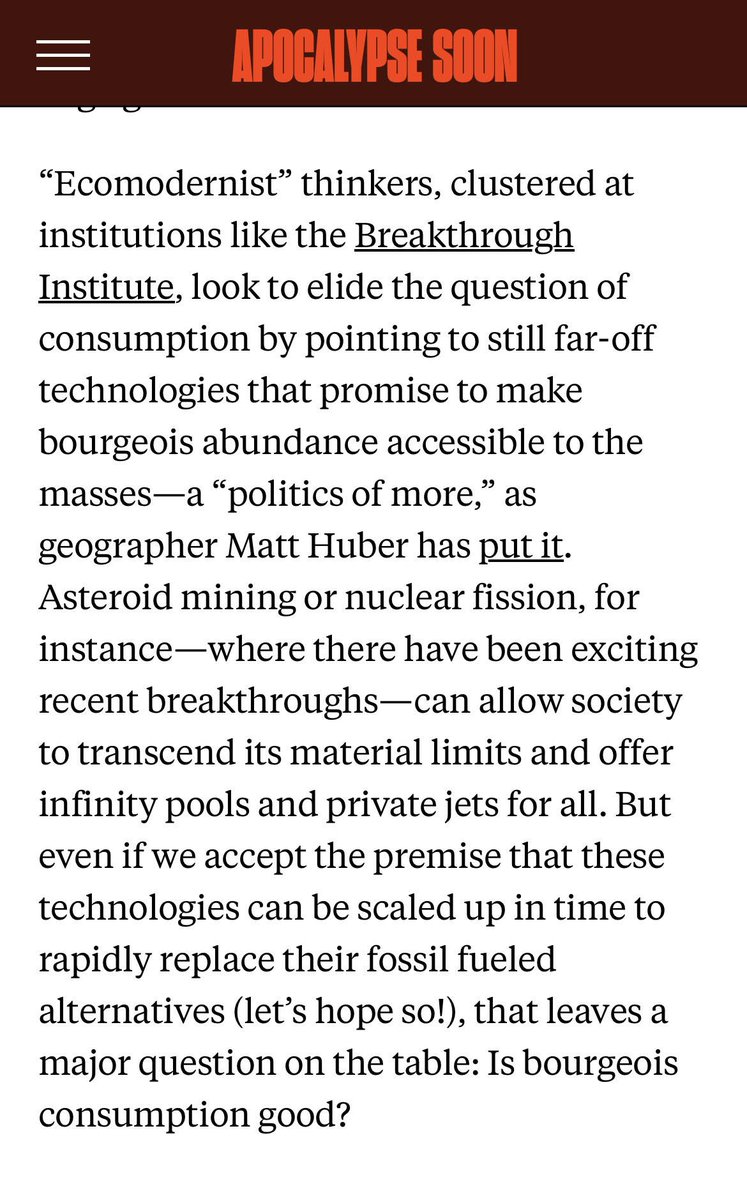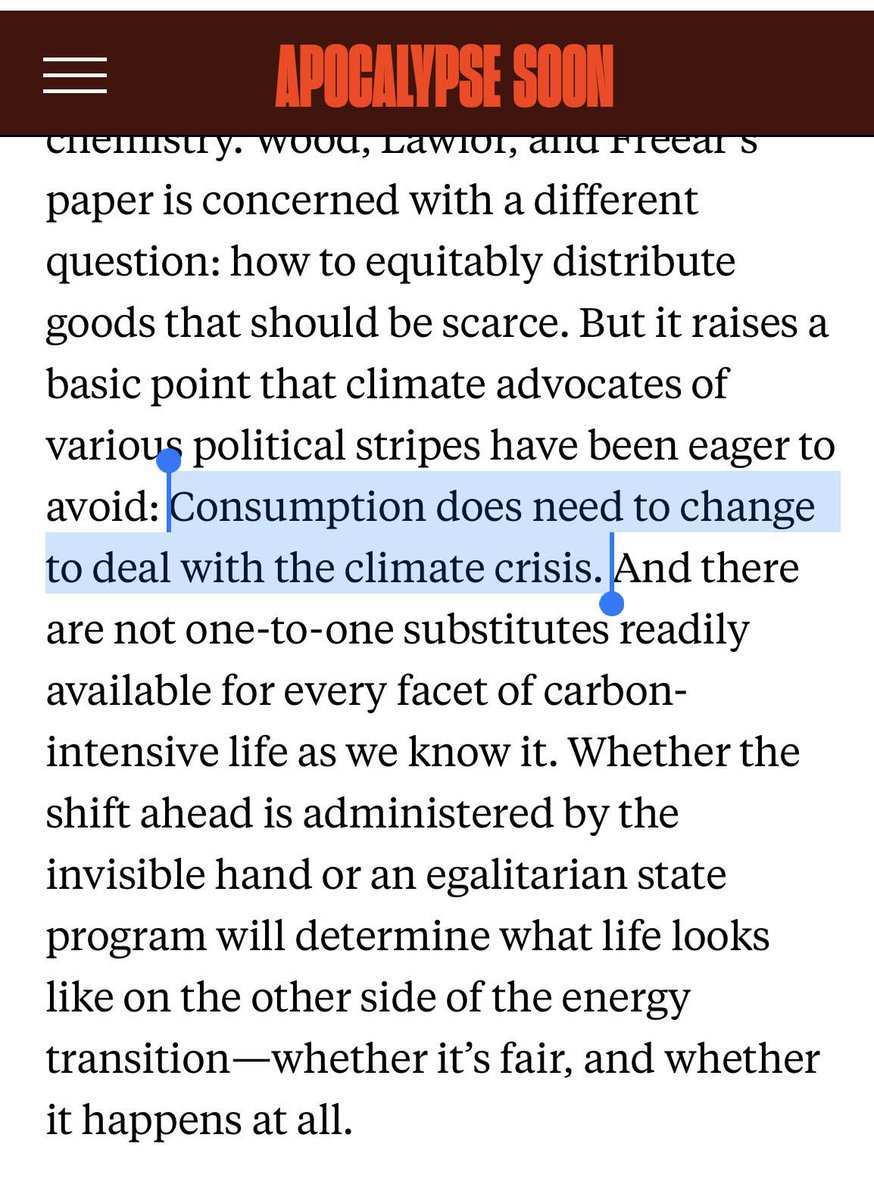
I've read this & I have many thoughts. I will write a review, but not sure when I'll have time or where it will end up. In the meantime, I can't help but address what I think is a totally unsubstantiated claim in the book: Marx *abandons* historical materialism late in life. 1/x 

Saito claims this abandonment begins in Capital (diverging from articulations of HM in 1859 preface/Grundrisse). Supposedly Marx's concepts of cooperation/real subsumption show he no longer believed the dev of productive forces create the material conditions for socialism. 2/x
It can't be understated how bold these claims are (& I haven't seen reviews bring it up):
159 - "[the pf of capital]..compelled Marx to abandon his earlier formulation of HM"
159 - "In Capital he was no longer able to endorse the progressive character of capitalism."
3/x
159 - "[the pf of capital]..compelled Marx to abandon his earlier formulation of HM"
159 - "In Capital he was no longer able to endorse the progressive character of capitalism."
3/x
173 - "In finally discarding both ethnocentrism and productivism [in the 1870s], Marx abandoned his earlier scheme of historical materialism. It was not an easy task for him. His worldview was in crisis." 4/x
182- "Marx must have completely parted ways w/ HM as it has been traditionally understood" and Marx "consciously discarded historical materialism..." 5/x
177 - "He realized that the productive forces do not automatically prepare the material foundation for a new post-capitalist society, but rather exacerbate the robbery of nature." 6/x
This allows Saito to argue against HM and for a kind of ahistorical idealism. Under socialism there will be no use of capitalism's productive forces. They "disappear together with the capitalist mode of production" (156). 7/x
When it comes to technology, socialism will have to "start from scratch in many cases” (158). Start from scratch socialism! All the technological breakthroughs of the last few centuries must be smashed & disappear! 8/x
So what *evidence* does Saito marshal for this claim about Marx abandoning HM (he literally calls it an *epistemological break* on p. 209, ala Althusser). It’s incredibly *thin*. 8/x
He uses this passage from the preface to Capital in order to note the absence of his mention of ‘the productive forces’ in contrast to the famous 1859 preface. 9/x 
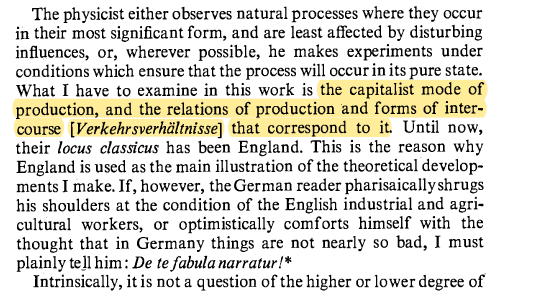
But, this ignores that Marx actually footnotes the 1859 preface in Capital itself! (p. 175 Penguin edition) To be fair he *does* exclude the productive forces from the quote, but he doesn’t seem like someone who had abandoned the 1859 formulation which he calls 'my view' 9/x 
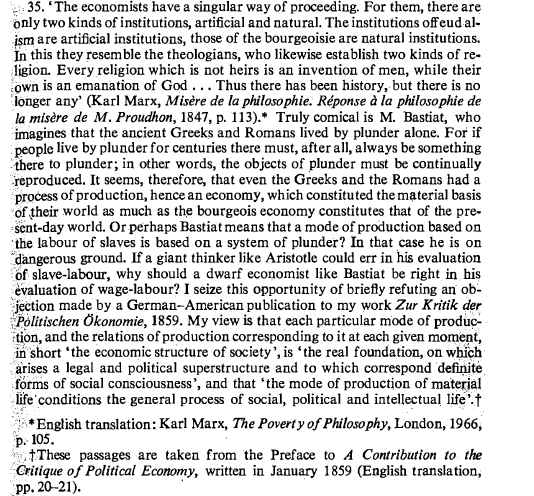
Plus, in Capital itself, Marx says things like this *a lot*. Note here how central the “development of the productive forces” are argued to create the material conditions which “alone” (ALONE!) form the basis for socialism. Sounds pretty historical materialist to me! 10/x 
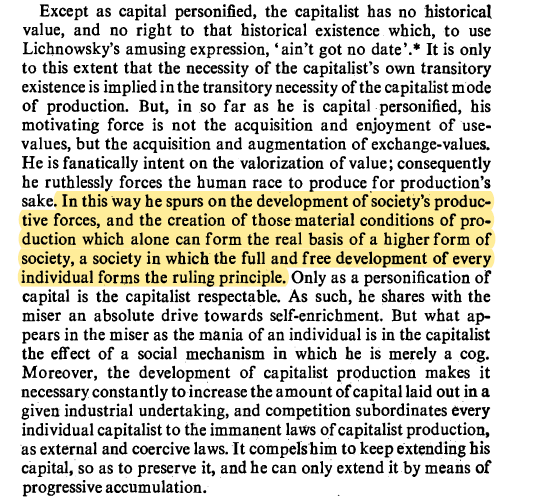
Also this passage from “Results...” (supposedly written btw 1863-66) which is the famous elaboration of the ‘real subsumption’ theory Saito claims is so central to abandoning HM. Again the productive forces *ALONE* provide the basis for a free society! 11/x 
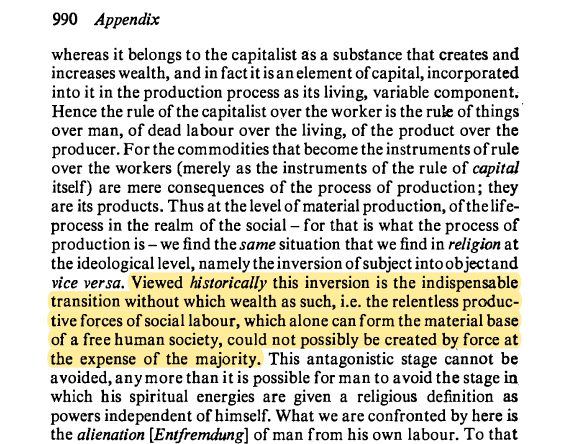
OK, but to be fair, Saito claims Marx really abandons HM and becomes a full blown “degrowth communist” after 1868 in the last 15 years of his life. What’s his evidence there? Again not much! 12/x
Basically some notebooks where Marx transcribed some things about livestock and soil (180-1). The key evidence is the well-trodden examination of Marx’s study of Russian agricultural communes in the 1870s 13/x
Saito makes a huge inference (and analytical leap) where he claims because these communes were stationary (developmentally) and Marx thought they could provide a basis for communism, he was a 'degrowth communist' (207). Wild! 14/x
But even Saito's quotes from Marx and Engels's 1882 preface to the communist manifesto showing both believed the communes could become a "point of departure" only alongside "proletarian revolution in the West, so that the two complement each other..." (195). 15/x
Also, again, if Marx fully abandons HM and becomes a 'degrowth communist' in the 1870s, he continues to write passages like this from The 1875 Critique of the Gotha Program that look rigidly HM! (Saito admits some read the Gotha program this way, 234). 16/x 
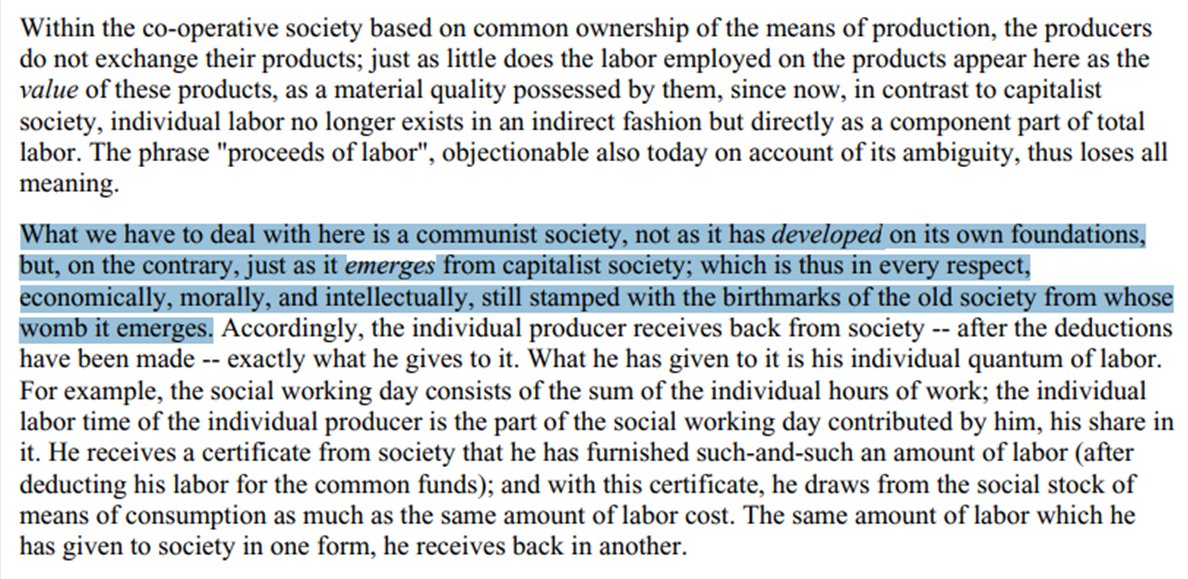
OK fair question: does it matter? Is this pointless Marxology? I think it matters. Marx's theory of HM is one of his most powerful ideas that inspired literally *millions* to believe capitalism was laying the conditions for the abolition of class & human emancipation.17/x
Here's how Lenin sums up the Critique of the Gotha Program (written in Marx's peak degrowth phase apparently): 18/x 

Here's Engels at Marx's funeral explaining the power of his materialist theory of history (btw on p. 209 Saito claims that Engels didn't really *know* Marx was a degrowth communist lol...it was Engels who spread HM theory best perhaps) 19/x 

So what is going on here? It seems to me this is a *desperate* attempt to contort Marx and Marxism into a post-1970s environmental and degrowth ideology. 20/x
On p. 155 Saito claims Grundrisse-era Marx (Promethean) is "incompatible w/ environmentalism." This crystallized Saito's project for me: to make Marx and Marxism "compatible with environmentalism." 21/x
But what does environmentalism have to show for it? It has risen during precisely the same period of a massive shift in political power toward the capitalist class. It has shown itself incapable of forming a movement able to challenge this capitalist power. 22/x
Meanwhile Marxism, & the associated theory of historical materialism, induced world-historical revolutionary upheavals & provided a serious challenge to capital. We might apply it's basic principles to the ecological crisis (rather than revise it to current movement fads) FIN
Oh, and @Leigh_Phillips and I plan to collaborate on the review (at some point!). His natural science knowledge will be really helpful in examining some of Saito's claims on the metabolic rift and the centrality of ideas of biophysical limits to 'degrowth communist' ideology.
*overstated 🤦♂️
• • •
Missing some Tweet in this thread? You can try to
force a refresh


